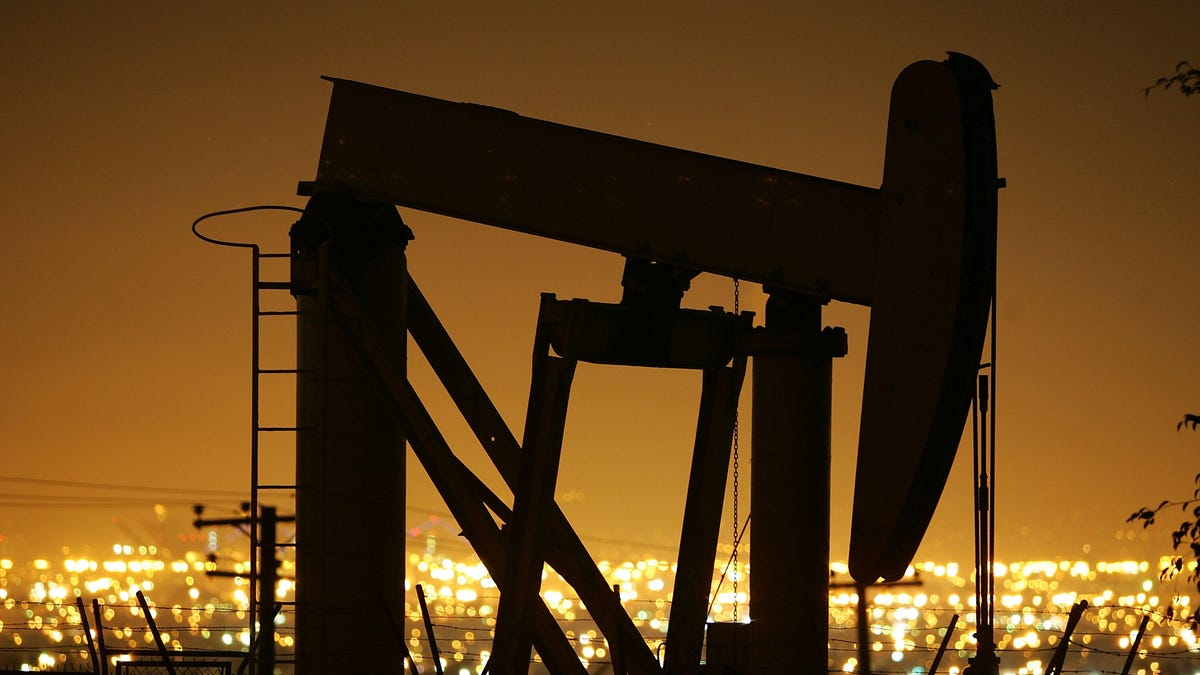Oil demand expected to taper next decade, but the bigger picture isn't pretty
Even if the latest projections are true, we're nowhere near close to "peak oil."

By 2040, oil demand may fall overall, but it won't be any cheaper per barrel.
"Peak oil" is a phrase tossed around often, defining the time when the world begins to back off its reliance on the fossil fuel and it enters a decline from thereon out. It's not to be confused with oil depletion. We're not running out of oil anytime soon.
In fact, the latest projections from the International Energy Agency show we're prepared to keep consuming plenty of it, despite a projected demand slump for oil next decade. The IEA released its banner report on Wednesday that outlines what the world will look like in 2040 if we stick to policies currently in place today, implement planned policies on schedule (stated policies) and what it would take to actually realize a "sustainable development" scenario.
In both cases of today's current policies and stated policies, we're not looking too good. As of today, energy consumption is expected to climb 1.3% each year until 2040. For the stated policies, energy consumption still grows by 1% each year until 2040. The IEA declared it would create a future "where pollution-related premature deaths remain around today's elevated levels, and where CO2 emissions would lock in severe impacts from climate change."
In other words, we need to collectively do better to keep any temperature changes to Earth under 35 degrees Fahrenheit.
With current projections, demand for the "black gold" starts to fall in 2025, largely due to more electric cars on the road. In the 2030s, oil demand will likely flatten totally. Meanwhile, that creates a new challenge: Where is the electricity coming from to charge the electric cars?
It's a scenario the IEA looked at that largely weighs on Asia. Right now, coal is the defacto energy source, though renewables remain a formidable rival throughout 2040. To collectively meet sustainability goals, Asia will need to do something about its coal-burning power plants. Meanwhile, the US will, according to this research, outpace Russia in oil production and create 85% of the world's new oil production in the same time period.
Back to electric cars, there's another challenge the IEA highlights: SUVs. The larger vehicles are already consuming more barrels of oil per day, and if the trends continue, the world may consumer 2 million additional barrels of oil per day by 2040.
You may wonder where all of the oil is going if demand starts to taper off next decade. That'd be the shipping, aviation and petrochemical segments that are responsible. Without changes here, these sectors could very well offset any gains electric cars create -- especially if governments don't curb emissions from power plants generating electricity for electric vehicles. The supply and demand outlook pegs a barrel of oil to cost $90 a barrel in 2030 before it creeps to $104 a barrel in 2040. For some comparison, a barrel as of this writing costs $57.
As it stands, on average, the world is showing energy efficiency improvement rates of 1.2%. That's far below what the IEA targets for future sustainability, which is 3% each year. That 1.2% figure has also fallen since the beginning of this decade.

